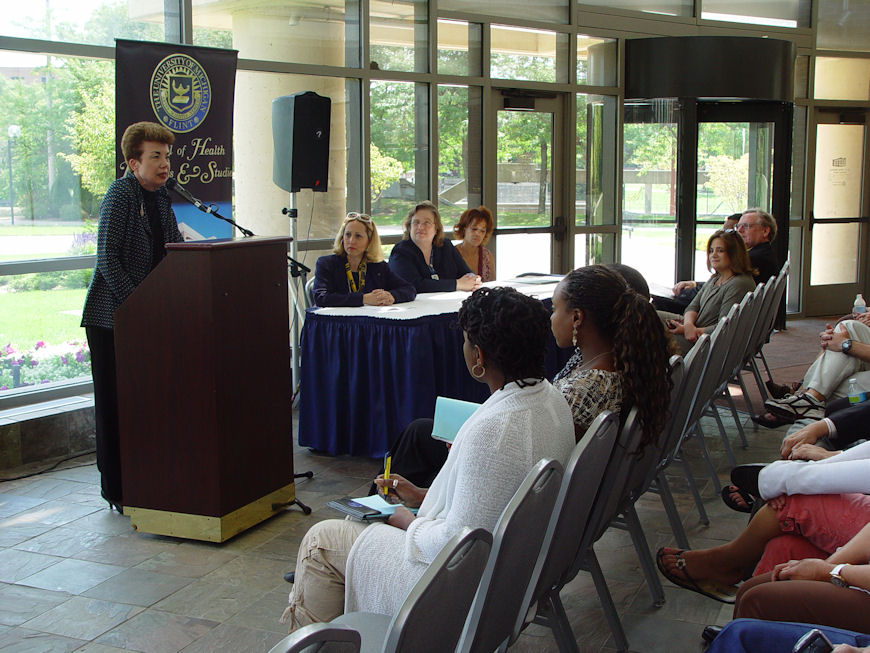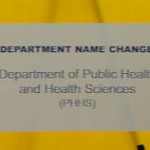Public Health: A UM-Flint Priority

The economic downturn and other related social issues in the Flint area have created a growing need for increased public health interventions. As people try to deal with issues ranging from unemployment and a lack of job prospects to poverty, researchers find a marked increase in depression, violence, alcohol and drug abuse, as well as heart attacks and strokes. Other major health issues facing the Flint area include: teen pregnancy, homicides, obesity, and diabetes. Public health works to better understand the factors that contribute to these conditions, and develops programs focused on improving the overall health of communities.
 "Flint's unemployment crisis affects everyone. The stress this places on our community as a whole affects our individual health and the community's health," said Dean Barbara Kornblau, School of Health Professions and Studies (SHPS). "The overwhelming stress of a weak economy makes us sicker. We have a crisis in diabetes and obesity. We know how to improve these conditions to make a healthier community for all."
"Flint's unemployment crisis affects everyone. The stress this places on our community as a whole affects our individual health and the community's health," said Dean Barbara Kornblau, School of Health Professions and Studies (SHPS). "The overwhelming stress of a weak economy makes us sicker. We have a crisis in diabetes and obesity. We know how to improve these conditions to make a healthier community for all."
The University of Michigan-Flint has a long history in advancing public health interventions. Now, through growing partnerships with other community organizations, UM-Flint is poised to assume a more visible leadership role in promoting the public's health. To start, the University of Michigan Board of Regents has approved changing the the name of the Department of Health Science and Administration to the Department of Public Health and Health Sciences (PHHS). This action is more than a name change. As the need for health care specialists grows, the Department of Public Health and Health Sciences' expanded faculty are well-positioned to prepare the needed public health specialists. The department is already planning for an increase in offered programs and areas of study.
"We have a dedicated and committed faculty trained in Public Health, and a growing number of students that we are preparing to meet the needs of the community," said Suzanne Selig, PHHS department director. "The new name more accurately describes our expertise."
Dean Kornblau outlined how the university will not only grow its public health department, but partner with other community organizations to better deliver community services. She was joined by Suzanne Cupal, public health analysis, Genesee County Health Department, and Hurley Medical Center CEO Patrick Wardell for an overview of some of the future programs. These programs will be designed to encourage not just individuals and families to change unhealthy habits, but entire neighborhoods.
Related Posts
No related photos.
UM-Flint News
The Office of Marketing & Communications can be reached at [email protected].